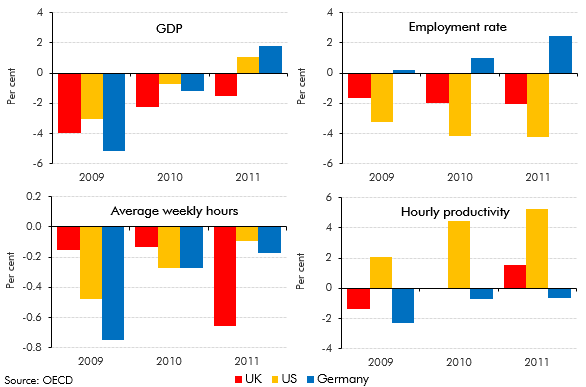The UK, the US and Germany all saw broadly similar falls in GDP over 2009, but their labour markets responded differently. This box discussed these differences and compared the behaviour of employment, hours and productivity over this period.
This box is based on OECD GDP, employment and productivity data from September 2012 .
The UK, the US and Germany all saw broadly similar falls in GDP over 2009. But their labour markets responded very differently. The US response was dominated by significantly reduced employment levels and working hours; Germany’s by lower working hours; and the UK’s by reduced employment, working hours and real wage growth. These varying labour market responses meant that the recession has had a different impact on labour productivity in each country.
Chart C: Changes in GDP, employment, hours worked and productivity since 2008

The swift labour market response in the US meant that productivity, as measured by GDP per hour worked, continued to grow steadily following the recession, compared with sharp falls in UK and Germany. German productivity growth has actually been weaker than the UK’s, but the UK’s weaker output recovery has drawn more attention to it.
